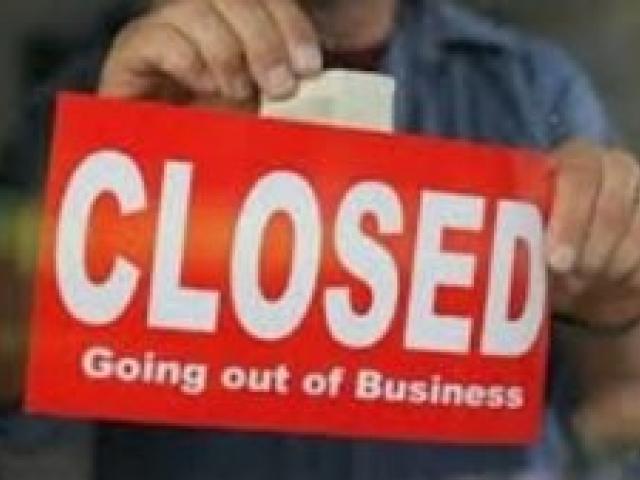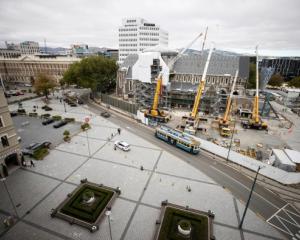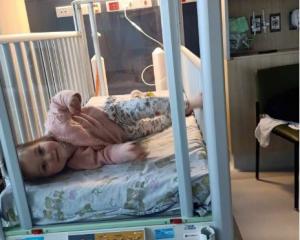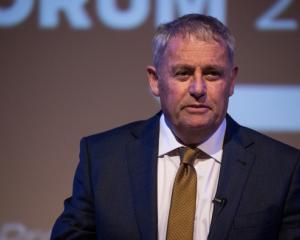
In his recent article The Coming Economic Crisis and its Political Consequences, Sir Bob Jones predicts New Zealand will have a change in government: “Have an election today and the government would bolt in, primarily because of Jacinda’s star power induced by the media’s obsession with her. But the election is six months away and then I’m picking a change of government.”
He points out that as an island nation with a younger and sparser population, New Zealand has largely avoided the high density living that helped to create the Covid-19 firestorm that has swept through so many countries. In itself, that’s an excellent reason why the obsessive promotion of high density living pushed by Green fanatics in councils across the country, should be rejected.

Sir Bob believes Labour will lose the election because their response to the virus has been too severe. Forcing all businesses to close down for over a month was unnecessary – many will go broke, and the widespread economic and social fallout will be massive.
In fact, the lockdown illustrates just how little this Government understands about small business. At a recent Parliamentary hearing Labour’s Finance Select Committee chairwoman Deborah Russell even appeared to blame small business owners for the dire situation they are in: “We are seeing a number of small businesses really struggling, after only a few weeks… which must speak to the strength of those small businesses going into this lockdown. It worries me that perhaps people went into small business without really understanding how you might build up a business or capitalise it in the first place, so you have the ongoing strength to survive a setback.”
As economic commentator Frank Newman explains in his Oh dear: Deborah Russell blog, “Deborah Russell is apparently a tax expert… but based on her comments about the collapse of small businesses she does not seem to have much comprehension of what it’s like to run a business and nor does she seem to have much empathy with people who actually contribute the wealth that she and her colleagues consume.”
In reality, the country did not need to go into a full lockdown. We were on the right track in early March when the prime minister asked everybody who was older and had underlying health problems to go into isolation.
As we’ve seen overseas, and from our own case statistics, while Covid-19 can have such a mild impact on those it infects that many don’t even know they have it, for that vulnerable group, it can be deadly. They are the ones that needed to be quarantined – especially those in rest homes – not the whole country.
For everyone else, strong border controls, effective testing and tracing, and a requirement for anyone infected to self-isolate – along with the general requirements for good hygiene, and appropriate social distancing – should have been enough to keep them safe.
Back in January when reports first emerged about a highly infectious outbreak of a new coronavirus in Wuhan, China, New Zealand adopted the Ministry of Health’s Influenza Pandemic Plan.
It’s a mitigation strategy designed to manage an influenza epidemic in such a way as to prevent hospitals from becoming overwhelmed, whilst minimising the impact on society and the economy.
It was last applied in 2009 by John Key’s Government to counter the global swine flu pandemic. Altogether 3175 cases of H1N1 were recorded and 19 deaths. While border controls were introduced, and some schools and businesses were temporarily closed, the economic and social disruption was minimal.
Those leaders did not panic. They did not impose a lockdown. Instead they followed the Ministry of Health’s strategy. That’s not the case today.
It’s reported that in mid-March, after the Pandemic Plan had been in operation for two months, that Ardern was presented with alarmist computer models claiming that unless the country was put into a lockdown ‘tens of thousands of New Zealanders will die’: “The Government relied on seven different models to inform its decision-making. One is an Imperial College London paper that estimated millions of Americans and hundreds of thousands of Brits would die without severe suppression measures like a lockdown. The paper altered policy in the United Kingdom, United States and New Zealand as well.”
When former Reserve Bank economist Ian Harrison examined the models he found that grossly inaccurate assumptions “led to an explosion in the number of cases and deaths.”
Instead of questioning the accuracy of the models, and balancing them with proper cost-benefit analyses of the economic and social consequences of locking down the country, the prime minister appears to have been spooked into making another of her disastrous Captain’s Calls.
We first heard about Ardern’s Captain’s Calls during the 2017 election campaign, when she unilaterally announced a Capital Gains Tax would be introduced if she became PM. Criticism over the vagueness of her policy forced her to propose a Tax Working Group would decide the detail. In the end, public opposition, killed the proposal.
Her second Captain’s Call was her disastrous decision to close down the oil and gas industry without any consultation or even Cabinet approval. At the time, she appeared oblivious to the devastation that her decision would cause to lives and businesses – not to mention the wider economy.
This latest Captain’s Call – to lock down the country and ‘eliminate’ the virus – required the declaration of a State of Emergency. At the time of her announcement, even though there were only two possible cases of community transmission – both of which were still being investigated – she claimed these as her justification: “If community transmission takes off in New Zealand the number of cases will double every five days. If that happens unchecked, our health system will be inundated, and thousands of New Zealanders will die.”
Australia’s approach to fighting the virus is similar to the strategy we were using prior to the prime minister’s change in direction. Their experience shows the wisdom of that approach – they have a far more open society and a much stronger economy than New Zealand, with fewer cases and fewer deaths per head of population.
According to the Worldometer website Australia has 265 cases of Covid-19 per million people, and 3 deaths per million, while New Zealand has 306 cases per million and four deaths per million.
The PM’s “go hard” approach to eliminate the virus confined everyone to their homes for almost five weeks, suspended our democratic and civil rights, devastated our economy with billions of dollars in bailouts and hundreds of thousands of expected job losses, and created a looming medical crisis.
As a result of those exaggerated computer models, the PM emptied hospitals ready for a projected tsunami of COVID-19 cases. They never arrived. But instead of correcting the situation and re-opening hospitals for operations, scans and diagnostic tests to clear the backlog, they have remained idle for almost six weeks.
The Cancer Society is among the many groups warning that hundreds of deaths may result from the lockdown.
These matters should be part of an inquiry into the handling of the Covid-19 crisis by the prime minister and her Government – especially the decision to replace the Ministry of Health’s proven Pandemic Plan with a strategy based on exaggerated computer models.
Questions should be asked about why robust cost-benefit analyses of the economic and social consequences of a four-week lockdown were apparently not obtained to inform decision-making.
According to Otago University law professor Andrew Geddis, the legal legitimacy of the lockdown and the limiting of civil liberties on such a significant scale, should be questioned as well: “The tenuous legal foundation of the lockdown regime represents a significant constitutional problem that needs to be addressed. ”
The role of the media has also been questioned.
Dr Steve Elers, a senior lecturer in journalism at Massey University, believes the prime minister has not been held to account for ‘misleading New Zealanders’: “During the Covid-19 daily briefings I’ve found myself yelling at the TV screen and sometimes even throwing things at it. Why? Because our journalists seem far too chummy with the prime minister instead of fulfilling their role as the watchdog for society… A healthy democracy requires the news media to hold power to account, regardless of who is in power, and to question government decisions.”
Dr Bryce Edwards, a political analyst at Victoria University is also critical of the lack of scrutiny of the PM: “Senior journalists complain that under the new crisis conditions, authorities and politicians no longer provide the public with adequate information.”
He believes the concentration of power in the prime minister’s office has been dangerous for democracy – and decision-making – and he explains that there’s a massive disconnect between what the public is being told, and what is actually happening on the ground.
That was a concern raised by the leader of the Opposition in response to the prime minister’s announcement that the level 4 lockdown was to be extended. On his Facebook page, Simon Bridges accused the Government of not being adequately prepared for level 3: “The decision for New Zealand to stay locked down in Level 4 shows the Government hasn’t done the groundwork required to have us ready…”
His post, which criticised testing and tracing, as well the on-going chronic lack of facemasks and other protective equipment for front line health workers, attracted some 29,000 comments on a site that would ordinarily attract a couple of hundred. Many claiming to be National supporters, also called for his resignation as party leader.
It was clearly an orchestrated political attack: Politics 101 – and it worked a treat. Instead of stories critical of Labour’s extension of the lockdown and the impact on our economy, the news bulletins focussed on Simon Bridges’ leadership.
It revealed how Labour’s well-organised PR machine is deeply penetrating social media, attacking anyone who dares to criticise their ‘Supreme Leader’.
Questions are also being asked over the prime minister’s failure to crack down on the vigilante road blocks run by groups claiming a territorial mandate, that are springing up around the country and intimidating motorists.
This week’s NZCPR guest commentator, freelance journalist Karl du Fresne asks why this brazen attack on the rule of law has remained unchallenged:
“Private citizens going about their lawful business have been stopped, detained and intimidated. And the police, who are entrusted to uphold the rule of law have looked the other way.”
With reports that gang members have been manning the roadblocks, Karl believes the wider implications for New Zealand are sinister: “Viewed against the backdrop of a long push for Maori nationalism, it should be seen for what it is: an attempt to advance a race-based separatist agenda.”
For the PM, it appears politics and a desire to retain the seven Maori seats, is overriding her duty to protect New Zealanders from tribal bullies.
With the country on the cusp of greater state control, now more than ever, New Zealand needs champions prepared to speak out and promote freedom and liberty.
I will leave the last word to former prime minister, Sir John Key, who did just that, during a recent interview on Rebuilding Paradise with Paul Henry: “It’s crucially important we get to a freer, more open economy. I don’t think the Government should wake up every day and say are we in level 3 and I’ll let you know in a couple of weeks if we move to level 2. I think they should get up every single morning and say what could we do, how could we get the economy growing faster, how could we get people back into work and into their businesses and do that in a safe way.”













